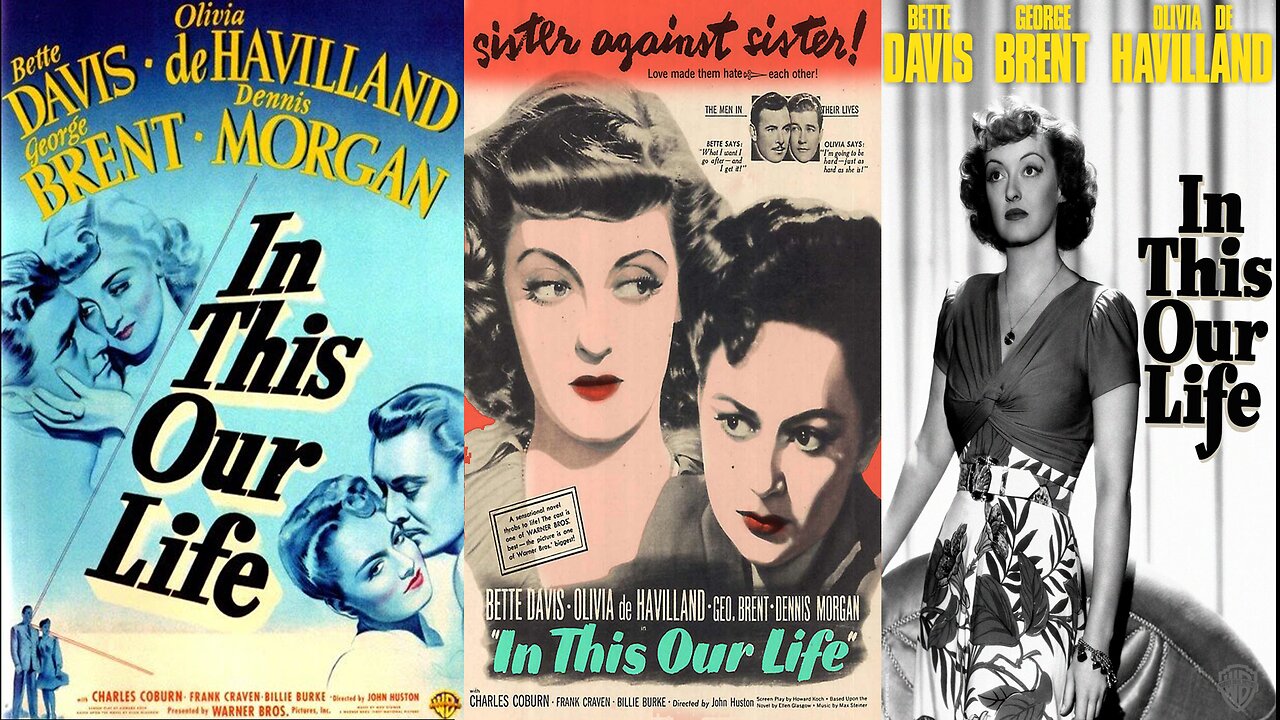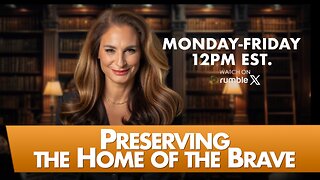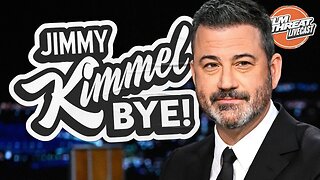Premium Only Content

Wichita's Hattie McDaniel in "In This Our Life" (1942)
Starring Wichita's, Hattie McDaniel
"In This Our Life" (1942) is an American drama film starring Bette Davis and Olivia de Havilland as sisters and rivals in romance and life (the third of six films in which de Havilland and Davis starred together). The film was directed mostly by John Huston, in his second film, but when Huston was called to a war assignment, an uncredited Raoul Walsh completed the film. The screenplay was written by Howard Koch based on the 1941 Pulitzer Prize-winning novel of the same title by Ellen Glasgow.
Completed in 1942, the film was rejected in 1943 for foreign release by the wartime Office of Censorship because it deals truthfully with racial discrimination in its plot.
Plot:
The day before her wedding, a pampered, unhappy, self-centered young woman absconds with her sister's husband wreaking havoc and ruining the lives of those around her. Her sister begins seeing the woman's former fiancé.
Bette Davis radiates malevolence, Olivia de Havilland radiates benevolence, and the men in their lives duck or keel over as the shrapnel from these battles fly their way. The film revolves around themes of selfishness and the consequences of one's actions.
Cast:
Bette Davis as Stanley Timberlake Kingsmill
Olivia de Havilland as Roy Timberlake Fleming
George Brent as Craig Fleming
Dennis Morgan as Peter Kingsmill
Frank Craven as Asa Timberlake
Billie Burke as Lavinia Timberlake
Charles Coburn as William Fitzroy
Ernest Anderson as Parry Clay
Hattie McDaniel as Minerva Clay
Lee Patrick as Betty Wilmoth
Mary Servoss as Charlotte Fitzroy
William B. Davidson as Jim Purdy
Edward Fielding as Dr. Buchanan
John Hamilton as Inspector
William Forrest as Forest Ranger
Walter Huston as Bartender (uncredited)
Reception:
In a contemporary review for The New York Times, critic Bosley Crowther called In This Our Life "neither a pleasant nor edifying film" and wrote that "the one exceptional component of the film" is the "brief but frank allusion to racial discrimination ... presented in a realistic manner, uncommon to Hollywood, by the definition of the Negro as an educated and comprehending character. Otherwise the story is pretty much of a downhill run." He concluded with an assessment of Davis in the role of Stanley: "In short, her evil is so theatrical and so completely inexplicable that her eventual demise in an auto accident is the happiest moment in the film."
Variety noted: "John Huston, in his second directorial assignment, provides deft delineations in the varied characters in the script. Davis is dramatically impressive in the lead but gets major assistance from Olivia de Havilland, George Brent, Dennis Morgan, Billie Burke and Hattie McDaniel. Script succeeds in presenting the inner thoughts of the scheming girl, and carries along with slick dialog and situations. Strength is added in several dramatic spots by Huston's direction."
Production
The Ellen Glasgow novel, for which Warner Bros. paid $40,000 for screen rights, portrayed William Fitzroy's incestuous desire for his niece Stanley as well as racist attitudes in Richmond society. Screenwriter Howard Koch, who was recommended by the film's director John Huston, deemphasized the book's controversial themes in his script in order to satisfy the current Motion Picture Production Code. Another significant departure from the novel is the film's happy ending created for Roy and Craig Fleming. In his review of the completed film, the critic Bosley Crowther said that it was "moderately faithful" to the novel and praised its portrayal of racial discrimination.
Bette Davis had wished to play the "good sister" but was eventually cast as Stanley Timberlake, a role for which she felt she was tool old. Davis was unhappy with the script, later recalling: "The book by Miss Glasgow was brilliant. I never felt the script lived up to the book." Davis also claimed that Glasgow disliked the screenplay, saying: "She minced no words about the film. She was disgusted with the outcome. I couldn't have agreed with her more. A real story had been turned into a phony film."
Davis was also unhappy about events during production. While in the midst of costume and wig fittings, Davis learned that her husband Arthur Farnsworth had been admitted to a Minneapolis hospital with severe pneumonia. Her friend Howard Hughes arranged a private plane, but her flight took two days, grounded by fog and storms. Almost immediately, studio head Jack L. Warner cabled Davis to demand her return to the film. Under Warner's pressure and with concern for her husband, Davis' own health declined. Her doctor ordered her to return to Los Angeles by train to rest before returning to work.
Davis argued with the film's producers about nearly every aspect of her character. She directed her hairstyle and makeup and insisted that Orry-Kelly redesign her costumes; the result was what some considered an unflattering wardrobe. However, she aided the project by finding Ernest Anderson, a black waiter at the studio commissary, to play Parry Clay. Although Davis felt that the film was "mediocre," she expressed satisfaction that the role of Parry Clay was "performed as an educated person. This caused a great deal of joy among Negroes. They were tired of the Stepin Fetchit vision of their people." Anderson won the 1942 National Board of Review Award for his performance.
Three days after the Japanese attack on Pearl Harbor, Huston was forced to leave the production for an assignment with the United States Department of War. The studio employed Raoul Walsh to complete the film, although he received no screen credit. Walsh and Davis immediately clashed, and she refused to follow his direction or to reshoot completed scenes. She developed laryngitis and was absent from the set for several days. After she returned, the producer Hal B. Wallis frequently acted as mediator between Davis and Walsh, who threatened to quit.
Because of the delays, the film was not completed until mid-January 1942, far past the scheduled date. Response to the first preview screening was highly negative, with audience comments especially critical of Davis' hair, makeup and wardrobe, the elements that she had controlled. Preparing for her role in Now, Voyager, Davis disregarded the comments. When the U.S. wartime Office of Censorship reviewed the film in 1943 before foreign release, it disapproved the work, stating: "It is made abundantly clear that a Negro's testimony in court is almost certain to be disregarded if in conflict with the testimony of a white person."
---
This video is for educational, historical, and informational purposes only and has not been monetized in any manner whatsoever.
It has been posted to be ad-free.
In Title 17 U.S.C. section 106A-117 of the US Copyright Law and under section 107 of the Copyright Act of 1976, allowance is made for "fair use" for purposes such as criticism, comment, news reporting, teaching, historic preservation, scholarships, education and research.
Fair use is a use permitted by copyright statute that might otherwise be infringing.
-
 LIVE
LIVE
The Mel K Show
1 hour agoMORNINGS WITH MEL K Preserving the Home of the Brave 9-19-25
632 watching -
 LIVE
LIVE
Film Threat
18 hours agoKIMMEL GONE! PLUS REVIEWS OF HIM + A BIG BOLD BEAUTIFUL JOURNEY + MORE | Film Threat Livecast
87 watching -
 34:24
34:24
Tudor Dixon
4 hours agoDave Rubin on Charlie Kirk’s Legacy, Free Speech, & a Divided America | The Tudor Dixon Podcast
10.3K2 -
 LIVE
LIVE
LFA TV
13 hours agoBREAKING NEWS ON LFA TV! | FRIDAY 9/19/25
4,183 watching -
 1:00:49
1:00:49
VINCE
3 hours agoTrump Is Finding The Missing Children | Episode 129 - 09/19/25
215K130 -
 1:50:42
1:50:42
Nikko Ortiz
2 hours agoBeing Poor Is A Choice?! - Rumble Studio LIVE
6.92K1 -
 1:26:44
1:26:44
Caleb Hammer
3 hours ago$60,000+ For New Boobs | Financial Audit
28.2K -
 1:13:39
1:13:39
The Big Mig™
3 hours agoRet. Col. Doug Macgregor, Battlefield Legend & Author
41.5K10 -
 1:45:19
1:45:19
Dear America
4 hours agoErica Kirk Just Announced As Turning Point CEO!! + Senate Dubs Oct 14th Charlie Kirk Day!!
130K27 -
 LIVE
LIVE
Benny Johnson
3 hours agoStephen Colbert DOUBLES DOWN On Jimmy Kimmel's Lies | Inside Decision to RIP Jimmy Kimmel Off Air...
5,210 watching